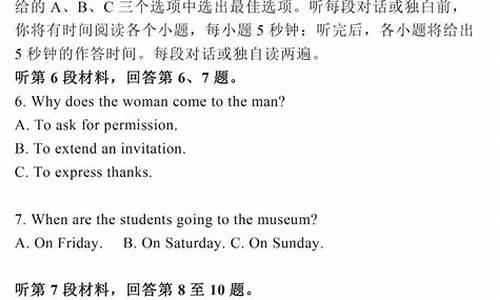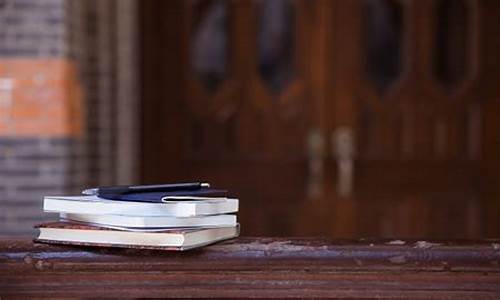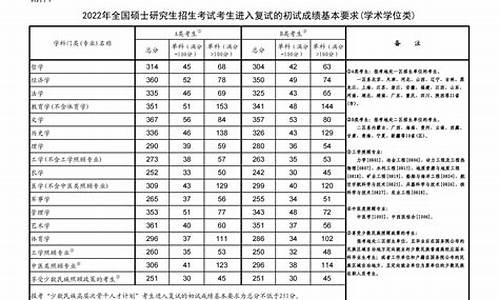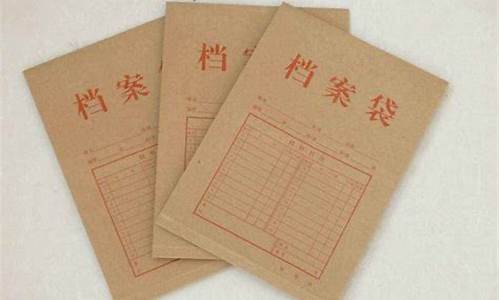您现在的位置是: 首页 > 教育政策 教育政策
高考英语听力考试题目,高考英语听力题库
tamoadmin 2024-05-21 人已围观
简介1.求福建省历年高考英语听力音频和原文 第三部分 语言运用(共两节,满分45分) 第一节 完形填空(共20小题;每小题1.5分,满分30分) 阅读下面短文,从短文后各题所给的A、B、C和D四个选项中,选出可以填入空白处的最佳选项,并在答题纸上将该项涂黑。 Alia Baker is a librarian in Iraq. Her library used to be
1.求福建省历年高考英语听力音频和原文

第三部分 语言运用(共两节,满分45分)
第一节 完形填空(共20小题;每小题1.5分,满分30分)
阅读下面短文,从短文后各题所给的A、B、C和D四个选项中,选出可以填入空白处的最佳选项,并在答题纸上将该项涂黑。
Alia Baker is a librarian in Iraq. Her library used to be a 36 place for all who loved books and liked to share knowledge. They 37 various matters all over the world. When the war was near, Alia was 38 that the fires of war would destroy the books, which are more 39 to her than mountain of gold. The books are in every language ? new books, ancient books, 40 a book on the history of Iraq that is seven hundred years old. (kaoshi.yjbys.com)
She had asked the government for 41 to move the books to a 42 place, but they refused. So Alia took matters into her own hands. 43 , she brought books home every night, 44 her car late after work. Her friends came to 45 her when the war broke out. Anis who owned a restaurant 46 to hide some books. All through the 47 , Alia, Anis, his brothers and neighbours took the books from the library, 48 them over the seven-foot wall and 49 them in the restaurant. The books stayed hidden as the war 50 . Then nine days laters, a fire burned the 51 to the ground.
One day, the bombing stopped and the 52 left. But the war was not over yet. Alia knew that if the books were to be safe, they must be 53 again while the city was 54 . So she hired a truck to bring all the books to the houses of friends in the suburbs(郊区). Now Alia waited for the war to end and 55 peace and a new library.
36. A. meeting B. working C. personal D. religious
37. A. raised B. handled C. reported D. discussed
38. A. worried B. angry C. doubtful D. curious
39. A. practical B. precious C. reliable D. expensive
40. A. then B. still C. even D. rather
41. A. permission B. confirmation C. explanation D. information
42. A. large B. public C. distant D. safe
43. A. Fortunately B. Surprisingly C. Seriously D. Secretly
44. A. starting B. parking C. filling D. testing
45. A. stop B. help C. warn D. rescue
46. A. intended B. pretended C. happened D. agreed
47. A. war B. night C. building D. way
48. A. put B. opened C. passed D. threw
49. A. hid B. exchanged C.burnt D. distributed
50. A. approached B. erupted C. continued D. ended
51. A. restaurant B. library C. city D. wall
52. A. neighbours B. soldiers C. friends D. customers
53. A. sold B. read C. saved D. moved
54. A. occupied B. bombed C. quiet D. busy
55. A. dreamed of B. believed in C. cared about D. looked for
非选择题部分 第三部分 语言运用(共两节,满分45分)第二节(共10小题:每小题1.5分,满分15分)
阅读下面材料,在空白处填入适当的内容(1个单词)或括号内单词的正确形式。
Last October , while tending her garden in Mora , Sweden , Lena Pahlsson pulled out a handful of small 56 (carrot) and was about to throw them away. But something made her look closer , and she noticed a 57 (shine) object. Yes, there beneath the leafy top of one tiny carrot was her long-lost wedding ring.
Pahlsson screamed 58 loudly that her daughter came running from the house. ?she thought I had hurt 59 (I),?says Pahlsson
Sixteen years 60 (early), Pahlsson had removed the diamond ring 61 (cook) a meal. When she wanted to put the ring back on later, it was gone. She suspected that one of her three daughters ?then ten, eight, and six? had picked it up, but the girls said they hadn't. Pahlsson and her husband 62 (search) the kitchen, checking every corner, but turned up nothing. ?I gave up hope of finding my ring again," she says. She never replaced it.
Pahlsson and her husband now think the ring probably got 63 (sweep) into a pile of kitchen rubbish and was spread over the garden, 64 it remained until the carrot?s leafy top accidentally sprouted (生长) through it. For Pahlsson, its return was 65 wonder.
第四部分 写作(共两节,满分40分)第一节 应用文写作(满分15分)
假定你是李华,计划组织一次郊游,请给你的英国朋友Chris写封邮件邀请他参加。内容包括:
1. 参加者;
2. 时间、地点;
3. 活动:登山、野餐等。
注意:
1. 词数80左右;
2. 可以适当增加细节,以使行文连贯。
第二节 读后续写(满分25分)
阅读下面短文,根据所给情节进行续写,使之构成一个完整的故事。
On a bright, warm July afternoon, Mac Hollan, a primary school teacher, was cycling from his home to Alaska with his friends. One of his friends had stopped to make a bicycle repair, but they had encouraged Mac to carry on, and they would catch up with him soon. As Mac pedaled (骑行) along alone, he thought fondly of his wife and two young daughters at home. He hoped to show them this beautiful place someday.
Then Mac heard quick and loud breathing behind him. ?Man, that's a big dog!? he thought. But when he looked to the side, he saw instantly that it wasn?t a dog at all, but a wolf, quickly catching up with him.
Mac?s heart jumped. He found out his can of hear spray. With one hand on the bars, he fired the spray at the wolf. A bright red cloud enveloped the animal, and to Mac's relief, it fell back, shaking its head. But a minute later, it was by his side again. Then it attacked the back of Mac's bike, tearing open his tent bag. He fired at the wolf a second time, and again, it fell back only to quickly restart the chase(追赶)。
Mac was pedaling hard now. He waved and yelled at passing cars but was careful not to show down. He saw a steep uphill climbbefore him. He knew that zxxk once he hit the hill, he?d be easy caught up and the wolf?s teeth would be tearing into his flesh.
At this moment, Paul and Beeky were driving their car on their way to Alaska. They didn?t think much of it when they saw two cyclists repairing their bike on the side of the road. A bit later, they spotted what they, too, assumed was a dog running alongside a man on a bike. As they got closer, they realized that the dog was a wolf. Mac heard a large vehicle behind him. He pulled in front of it as the wolf was catching up fast, just a dozen yards away now. (kaoshi.yjbys.com)
注意:
1. 所续写短文的词数应为150左右;
2. 应使用5个以上短文中标有下划线的关键词语;
3. 续写部分分为两段,每段开头语已为你写好;
4. 续写完成后,请用下划线标出你所使用的关键词语。
参考答案第一部分 听力
1. C 2. A 3. C 4. B 5. A
6. C 7. A 8. B 9. C 10 . B
11. B 12. C 13. A 14. B 15. A
16. B 17. C 18. A 19. C 20 . A
第二部分 阅读理解
21. C 22. D 23. B 24. D 25. A
26. C 27. B 28. A 29. B 30. C
31. D 32. C 33. B 34. A 35. F
第三部分 语言运用
36. A 37. D 38. A 39. B 40. C
41. A 42. D 43. D 44. C 45. B
46. D 47. B 48. C 49. A 50. C
51. B 52. B 53. D 54. C 55. A
56. carrots 57. shiny/shining 58. so
59. myself 60. earlier 61. to cook
62. searched 63. Swept 64. where
65. a
第四部分 写作
(略)
更多2017年高考英语真题分享阅读:求福建省历年高考英语听力音频和原文
2023年高考听力难。
根据网上投票,预测自己听力能得满分的考生占据投票总人数的38%,25分—29分之间的考生占据投票总人数的35%。而去年2022年预测能得满分的考生占据投票总人数的54%,说明今年的听力比去年的要难一些。
据考生反映,今年的外语听力试题难度比去年的真题要难不少。不少考生表示今年听力“英美混音,重现烟嗓,吐字含糊,题目比较绕,难度比去年提升了不少”。而且,有考生表示“第一场难度比第二场大”。预计今年的成绩查询时间,应该与去年差不多,应该也在2月底。
高考英语听力技巧:
1、迅速浏览问题。利用听录音前的时间,迅速看一遍题目,预测短文或对话可能涉及的内容。
2、注意听短文的首句和首段。文章的开首句和开首段,往往是对短文内容的概括,如讲话目的、主要内容、作者、论点、故事发生的时间、地点及事由等。
3、获取对话中的具体信息。注意对话中的一些具体信息,如时间、地点、人物、年代事件、数字等。
4、理解领会对话的意图观点、态度及内容。要特别注意讲话者随时会改变主意和更正说过的话。有时候,更正的话会由其他人说出来。
2014年福建省高考英语听力原文
Text 1
W: Excuse me. This is the address. How do I find it?
M: Right. You’ll need a street map. Here’s one, and I’ll show you where it is.
Text 2
W: Oh my! My car broke down, and I have to meet my aunt at the railway station before noon.
M: You’re lucky. I can drop you off on my way.
Text 3
W: Did you hear that Mr. Peterson is coming next week, Gordon?
M: Yes, so I called all the department heads to my office this morning. We need to give him reports on our program.
Text 4
W: I hope you like the book I lent you. I wasn’t sure if you’d be interested.
M: I had the same doubt at first. But once I started, I simply couldn’t put it down.
Text 5
W: What is going on? It’s May, and we still have to wear warm clothes.
M: Well, there’s some good news on the radio. You probably can wear shorts tomorrow.
Text 6
W: Harry, let’s play some ping-pong today.
M: I’d love to play a set or two, but my right arm hurts. I’ve decided to stop playing ping-pong until it feels better.
W: Well, how about going skating?
M: I’d like to, but my knee hurts, too.
W: Harry, stop making excuses! You’re just lazy.
M: No, I’m not! You know, there’s a basketball match on TV today. Let’s just stay home and watch it.
W: OK. You stay, and I’ll play with Helen.
Text 7
W: What do you want to do tonight?
M: How about going to the cinema? I should be home from work at 5:45. Then we can go out and eat before we see a film.
W: What do you want to see?
M: There’s a good art film at the Green House Cinema.
W: Let’s see…it starts at 6:15. I don’t think we can get there in time to see the beginning. How about the action film at the New State Cinema? It starts at 6:50. Perhaps the 7:00 one at the UME Cinema is even better. It stars Jackie Chan.
M: OK, that’s fine. I like him, too.
Text 8
M: Hey, Lucy. Do you have some time to talk about next week’s trip with me?
W: Sure, Dave.
M: OK. So, we’re leaving on Monday from Hartsfield International Airport, and returning on Friday. Do we take ourselves to the airport? Maybe we need to book a taxi, or just go by bus.
W: No, we don’t have to. The company car will pick us up and take us there.
M: Oh, that’s good. When?
W: Our flight leaves at 11:00 a.m., so they should pick us up between 8:00 and 9:00 a.m. Besides, the company pays for our trip, including hotel and food.
M: How much will that be?
W: Well, New York is a pretty expensive city. So, each of us will get $200 a day.
M: Oh, OK. Thanks for telling me that.
W: You’re welcome.
Text 9
W: Please sit down. Let’s see…you’re Mr. Smith. Is that correct?
M: Yes. John Smith.
W: And you’re interested in this job?
M: Yes, I am. I’ll graduate from college the coming June. My major is Chinese.
W: I see. Have you ever done any work in this field?
M: Yes, I used to be a tour guide for Chinese travellers.
W: Good. Now, how much money do you expect to have for a year?
M: From what I’ve read, it seems that a starting pay would be around $12,000 a year.
W: Here, you would start at $10,500 for the first year…a kind of training period. Then you would go to $15,000.
M: That sounds fair enough. What do you think are the chances for me to get a job here?
W: Well, I’m talking to three people today and four tomorrow. We’ll be hiring two people. You’ll hear from us sometime next month. Good luck! And thanks for coming in today.
Text 10
M: Well, I’d love to share with you my personal opinions on city life and life in small towns. I grew up in a small town until I was 18 and then moved to a big city, so I have experienced the good and bad sides of both. I never thought that I would like living in a big city, but I was wrong. After ten years of living in one, I can’t imagine ever living in a small town again. Surely small towns and big cities both have some problems in terms of transport. In a small town, you have to own a car to make life comfortable. You can’t get around without one because there isn’t any kind of public transport. Big cities generally have heavy traffic and expensive parking, but there you have a choice of taking public transport, which is cheaper than driving. So, if you don’t have a car, you’d better live in the city. I also love the exciting life in big cities. I can always enjoy a lot of films, concerts, and other wonderful shows. However, these things are not common in small towns. The final thing I like about large cities is that you can meet different kinds of people. However, you seldom find such a variety of people in a smaller town. I think that living in an area where everyone was just like me would quickly become dull. Of course, safety should be considered, and that’s one area where small towns are better than big cities. Still, I would rather be a bit more careful and live in a large city than to feel safe but dull.
第一节(共5小题,每小题1.5分,满分7.5分)
听下面5段对话。每段对话后有一个小题,从题中所给的A、B、C三个选项中选出最佳选项,并标在试卷的相应位置。听完每段对话后,你都有10秒种的时间来回答有关小题和阅读下一小题,每段对话仅读一遍。
例:How much is the shirt?
A. £19.15 B. £9.18 C. £9.15
答案是C。
1.What does the woman want to do?
A. Find a place. B. Buy a map. C. Get an address.
2.What does the man do for the woman?
A. Repair her car B. Give her a ride C. Pick up her aunt.
3.Who might Mr. Peterson be?
A. A new professor B. A department head C. A company director.
4. What does the man think of the book?
A. Quite difficult. B. Very interesting. C. Too simple.
5. What are the speakers talking about?
A. Weather B. Clothes C. News.
第二节(共15小题,每小题1.5分,满分22.5分)
听下面5段对话或独白,每段对话或独白后有几个小题,从题中所给的A、B、C三个选项中选出最佳选项,并标在试卷的相应位置。听每段对话或独白前,你将有时间阅读各个小题,每小题5秒钟;听完后,各小题给出5秒钟的作答时间。每段对话或独白读两遍。
听第6段材料,回答6、7小题。
6. Why is Harry unwilling to join the woman?
A. He has a pain in his knee.
B. He wants to watch TV.
C. he is too lazy.
7. What will the woman probably do next?
A. Stay at home.
B. Take Harry to hospital.
C. Do some exercise.
听第7段对话,回答8、9小题。
8. When will the man be home from work?
A. At 5:45 B. At 6:15 C. At 6:50
9. Where will the speakers go?
A. The Green House Cinema. B. The New State Cinema. C. The UME Cinema.
听第8段对话,回答第10至12题。
10. How will the speakers go to New York?
A. By air. B. By taxi. C. By bus.
11. Why are the speakers making the trip?
A. For business. B. For shopping. C. For holiday.
12. What is the probalbe relationship between the speakers?
A. Driver and passenger B. Husband and wife C. Fellow workers.
听第9段对话,回答第13至16题。
13. Where does this conversation probably take place?
A. In a restaurant. B. In an office. C. In a classroom.
14. What does John do now?
A. He’s a trainer. B. He’s a tour guide. C. He’s a college student.
15. How much can a new person earn for the first year?
A. $10,500. B. $12,000. C. $15,000.
16. How many people will the woman hire?
A. Four B. Three C. Two
听第10段材料,回答第17至20题。
17. How long has the speaker lived in a big city?
A. One year. B. Ten years. C. Eighteen years
18. What is the speaker’s opinion on public transport?
A. It’s comfortable B. It’s time-saving C. It’s cheap.
19. What is good about living in a small town?
A. It’s safer. B. It’s healthier. C. It’s more convenient.
20. What kind of life does the speaker seem to like most?
A. Busy. B. Colourful. C. Quiet.









